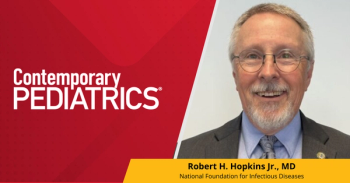
Behavior: Ask the Experts
BEHAVIOR:
ASK THE EXPERTS
SHOULD CHILD BE ENCOURAGED TO BE BILINGUAL?
Editor's note: For more on the following topic, look for "Language development in bilingual children: A primer for pediatricians" in an upcoming issue.
Q Would you encourage children to speak two languages when the parents and siblings are bilingual?
Solomon J. Cohen, MD
Kennebunkport, Maine
A Why not? What a great opportunity for the child to become bilingual, too. Some people are concerned that learning two languages at the same time is too confusing for the young child, resulting in delayed acquisition of one or both. The experts I listen to, however, as well as my own clinical experience, say that children have a remarkable ability to sort out the two languages and rarely, if ever, suffer from this process. Furthermore, if the parents and siblings are all speaking two languages, how could you stop the child from becoming bilingual, too, even if you wanted to? I wish I had had such good fortune!
William B. Carey, MD
Philadelphia, Pa..
DR. CAREY is Clinical Professor of Pediatrics, University of Pennsylvania School of Medicine, and Director of Behavioral Pediatrics, Division of General Pediatrics, Children's Hospital of Philadelphia.
OPPOSITIONAL 6-YEAR- OLD WITH ADHD
Q I have been following a 6-year-old girl with ADHD and behavior problems for one year. Her mother's main concern is the girl's oppositional behavior towards her and the maternal grandparents. The girl, who has no siblings, speaks disrespectfully to them and throws "fits." She functioned well at school this year and acts normally when playing with other children. She does act jealous of some nieces and nephews, however. Mother works part-time and clearly arranges her schedule and activities around this child's every need and whim. The paternal grandparents also try to undermine the mother's authority. In the office, this girl scowls at me and my staff and refuses to be weighed and measured. She did allow me to examine her briefly as she sat on her mother's lap. I have worked with the mother to explain that this type of manipulation is unhealthy for the family (the mother is on an antidepressant because of the stress) and recommended family counseling. What else do you suggest?
Pamela Quarantillo, MD
Berkeley Springs, W.Va.
A You are sensing, accurately I believe, that the emotional issues in this case go well beyond the identified diagnosis of ADHD. During the past several years, researchers have identified subtypes of ADHD as well as comorbid conditions. For example, children have been identified as having ADHD plus an anxiety disorder, ADHD plus depression and, especially in boys, ADHD plus oppositional disorder. The advantage of such subtyping is that it clarifies the bushel basket use of the term ADHD and should allow researchers to distinguish the impact of behavioral interventions or medications and differentiate factors in long-term outcomes.
Describing your patient as having ADHD and symptoms of oppositionality does not define the cause of her behavior, however. That she has done well in school and acts normally when playing with other children suggests that her ADHD is under good control and is not substantially impairing her functioning in school. If she is on stimulant medication, a contributing factor at home may be the possible side effects of irritability or moodiness as the medicine wears off in the afternoon or evening. If her teacher confirms her good adjustment to the expectations of the classroom, her oppositional behavior may be rooted in family conflicts and not be related directly to her ADHD. Is her manipulation of her depressed and overwhelmed mother part of coping with the ADHD or is it independent of this condition? How severe is the mother's depression? Is it the genetic basis for any depressive feature in the child or are there family issues that are not being adequately addressed? Are there conflicts in the extended family with paternal grandparents undercutting the mother's authority and encouraging the child's sense of power and entitlement? Where does the father fit in this picture? Is there marital conflict? Does he covertly encourage the child's or paternal grandparents' behavior?
These are not easy issues for a primary-care physician to address, yet they are critical to the child's future development. I suggest getting permission to talk with the mother's physician. Next, I would ask to meet with both parents, without the child, and get a sense of the father's perspective and role. Could you help the mother and father form a better parenting unit, define the rules and tone of their home, and then negotiate a common front with all of the extended family? If this proves too difficult, referral for a mental health evaluation of the child would be an alternative. If such a resource is not available and you are comfortable in dealing with psychological issues, you could take the bold step of arranging a meeting of parents and grandparents. At this meeting you could relate all of the observations and concerns you have gathered about the child's behavior, note that she is at substantial risk for long-term emotional harm, and ask for everyone's advice and help. Leading such a network session can help the situation dramatically and is likely to be a memorable experience.
Michael S. Jellinek, MD
Boston, Mass.
DR. JELLINEK is Senior Vice President for Administration and Chief, Child Psychiatry Service, Massachusetts General Hospital, and Professor of Psychiatry and of Pediatrics, Harvard Medical School, Boston.
Morris Green. Behavior: Ask the Experts. Contemporary Pediatrics 2001;5:39.
Newsletter
Access practical, evidence-based guidance to support better care for our youngest patients. Join our email list for the latest clinical updates.








